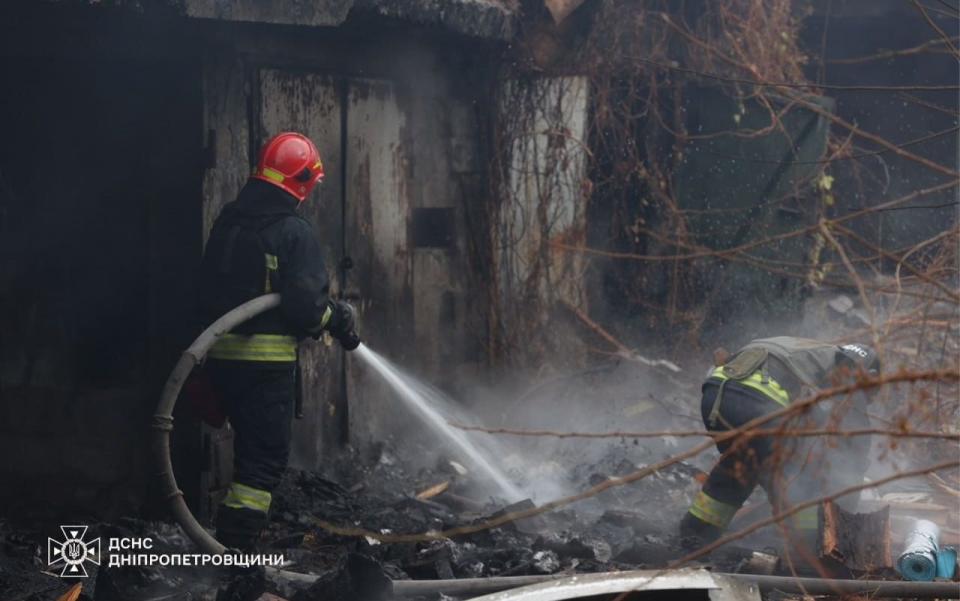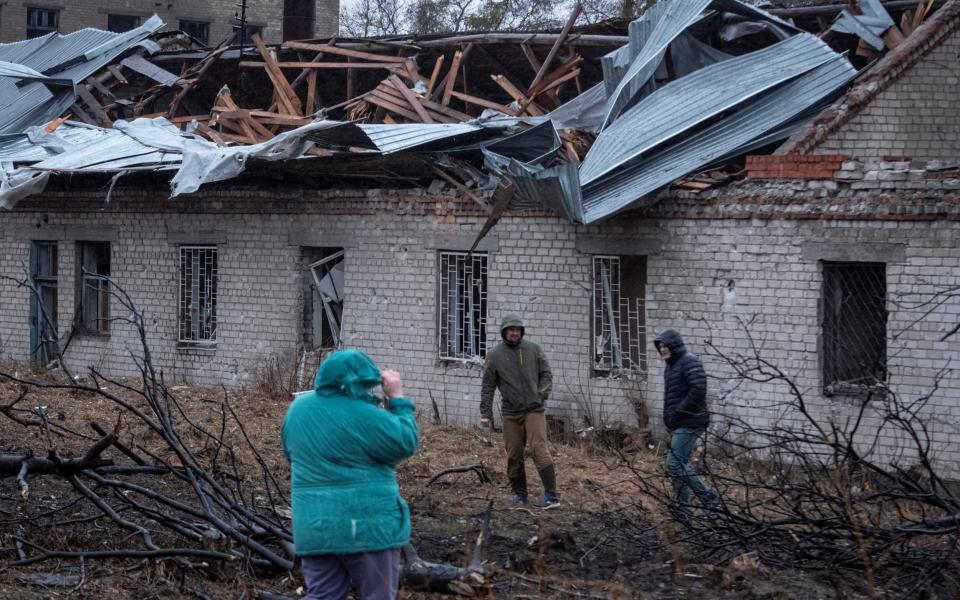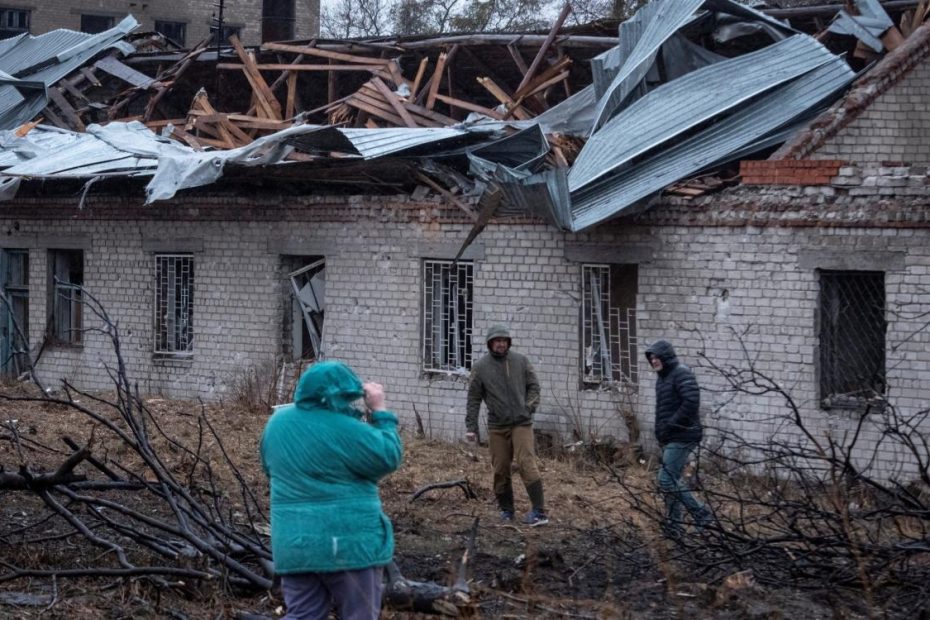Credit: Telegram/dnepr_operativ
Russia fired an intercontinental ballistic missile (ICBM) at Ukraine for the first time early Thursday morning, Kyiv's air force said.
According to the report, the missile struck Dnipro, in southern Ukraine, a few minutes after being fired from a location in Astrakhan, on the Caspian Sea.
A defense source later told Ukrainian media that the missile was an RS-26 Rubezh, which Kiev believes Moscow fired in response to Ukraine firing Western missiles at Russia.
The missile was reportedly fired as part of a wider attack on Dnipro, which Ukraine said injured two people and set off a fire in an industrial area. A rehabilitation center for people with disabilities was damaged and a fire broke out in a residential building, emergency services said.
“From the early morning, the aggressor has launched a massive attack on the region,” Sergei Lysak, the head of the Dnipropetrovsk regional administration, said in a statement.

Firefighters work at the site of the Russian attack on Dnipro – Press Service of the State Emergency Service of Ukraine/Anadolu via Getty Images

People examine the damage caused by the Russian attack on Dnipro – Mykola Synelnykov/Reuters
The RS-26 is classified as an ICBM under a nuclear arms reduction treaty between the United States and Russia, but could be considered an intermediate-range ballistic missile when used with heavier payloads at a range of less than 5,500 km, according to the Center for Strategic Planning and International Studies said.
But Western missile experts have cast doubt on whether Russia has launched an ICBM.
Andrey Baklitskiy, senior investigator on weapons of mass destruction at the United Nations, pointed out that Moscow did not notify Washington of the launch 24 hours in advance, as is customary.
“There is a lot we don't know,” Baklitskiy said. “If true, this will be completely unprecedented and the first actual military use of an intercontinental ballistic missile. Not that it makes much sense, given their price and precision.
The RS-26 Rubezh weighs 50 tons and has a warhead three times larger than the Iskander missiles.
The missile is described as being in an “experimental” phase as it has barely been test-fired. It can fly five times the speed of sound, making it difficult for the Patriot missile systems guarding Kiev to shoot down.
Pavel Podvig, also a senior researcher on weapons of mass destruction at the UN, said Russia shut down its RS-26 Rubezh missiles in 2018.
“You cannot rule out that the RS-26 was brought out of 'retirement' due to an attack,” he added. “This means that Russia has had some of these missiles in storage for almost a decade. Not impossible, but rather unlikely.”
The Kremlin has not yet made any official comment, but the Russian Foreign Ministry spokesperson received a call during a live press conference on Thursday ordering her not to comment on reports of a ballistic missile attack.
“Masha,” said an unknown male voice on the phone, addressing spokeswoman Maria Zakharova with a nickname for Maria, “about the Yuzhmash ballistic missile attack that the Westerners have started talking about, we do not comment at all.”
Yuzhmash refers to a Ukrainian missile manufacturer in Dnipro.
Broaden your horizons with award-winning British journalism. Try The Telegraph free for 3 months with unlimited access to our award-winning website, exclusive app, money-saving offers and more.

